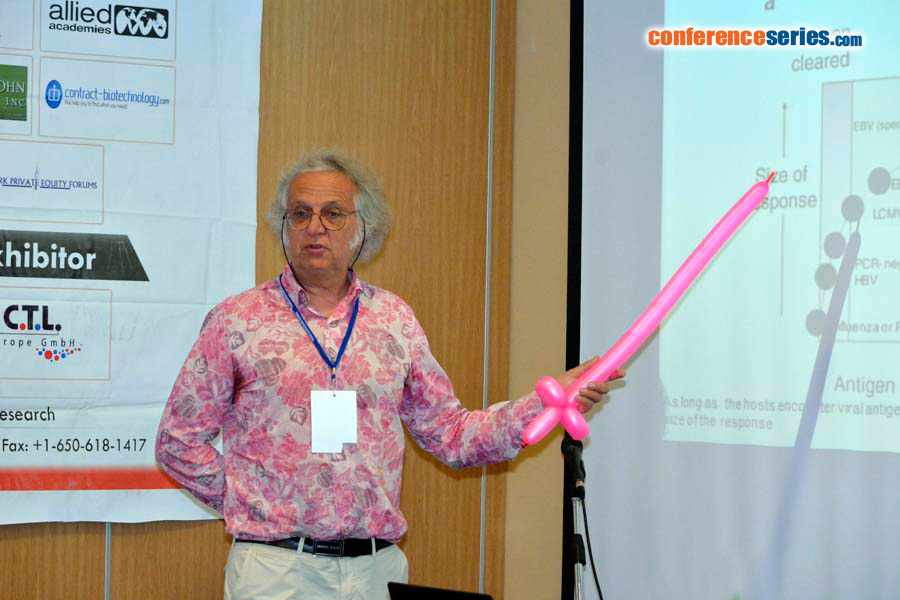
Emmanuel Drouet
Université Grenoble-Alpes, France
Title: Challenges and dilemmas about vaccines against the herpesviruses : The case of EBV
Biography
Biography: Emmanuel Drouet
Abstract
Human Herpesviruses (HHV1-8) have co-evolved through a persistent infection in the host, spread efficiently to others, generally without causing serious disease. The complex interplay between host and virus has made it difficult to elaborate useful vaccine strategies to protect against the HHV-associated diseases. The Varicella-Zoster vaccine represents the paradigm of a successful Herpesvirus vaccine. This live-attenuated vaccine demonstrates unequivocally that it is possible to develop vaccines against these viruses. Over the years, the development of HHV vaccines has been a story of mixed fortunes, especially for HSV-2 and HCMV. However, studies carried out in various disease settings (i.e. transplant patients or pregnant women), have clearly emphasized the importance of cellular immunity and it is indeed encouraging to see that recent HHV vaccine (i.e. HCMV) development programs have started to incorporate this arm of the immune system. Nowadays, an array of arguments calls for a realistic goal for vaccine strategies which should be preventing HHV disease rather than HHV infection. It is particularly the case for the Epstein-Barr Virus (EBV or HHV4) which is the primary cause of infectious mononucleosis and is associated with epithelial cell carcinomas, as well as lymphoid malignancies. One challenge is that the EBV expresses very different proteins during its lytic and its latent phases. To address this, vaccine candidates have been designed to include proteins from both phases. Here we review the history of EBV vaccine development and the current strategies in the development of new EBV vaccines: As EBV is associated with nearly 200,000 new malignancies each year worldwide, an EBV vaccine to prevent these diseases is really needed. Parallel to this need one could propose priorities for future research: (i) Identification of surrogate markers that predict the development of EBV-related malignancies. (ii) Determination of immune correlates of protection against EBV infection and disease in animal models and in humans. (iii) Definition of a goal for an EBV vaccine and criteria for licensure.
Speaker Presentations
Speaker PPTs Click Here

